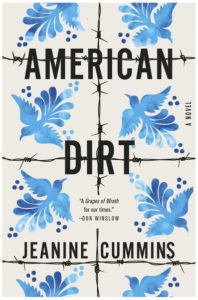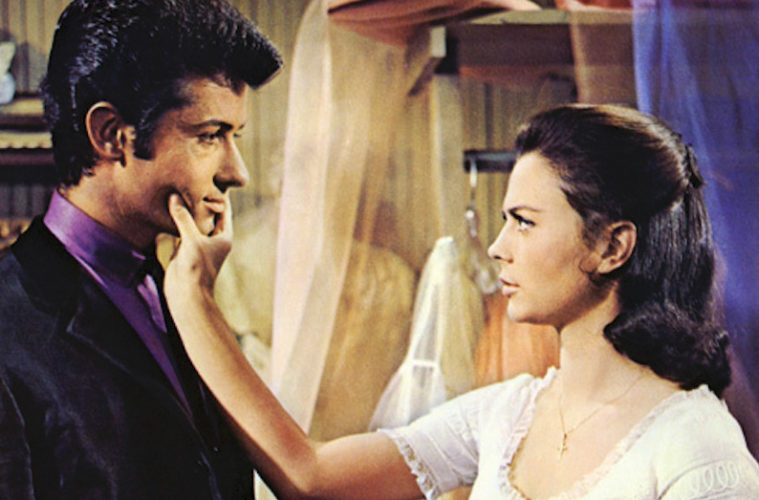I was about 9 years old when I saw West Side Story, and as I watched a very tanned Natalie Wood sing “I Feel Pretty,” I was aware that she neither looked or sounded like my tía Diana. Other than Rita Moreno, nothing about this musical resonated with me or my experience as a Puerto Rican. I had only been living in the Bronx for a few years when I came across Bernstein’s modern-day Romeo & Juliet involving New York street gangs, one of them being the Puerto Ricans. Even at that age, I understood that these actors were not me, and this was not my story or my family’s story. It was the first time I realized that others might feel entitled to speak for me, and as I got older, raising three ChicanoRican children in the suburbs of Los Angeles, I’ve been reminded that there is nothing “pretty” about the co-opting of people of color’s stories. Which brings me to the current controversy over the book American Dirt.
Back in 2019 Flatiron Books sent galleys and asked for blurbs for their new fiction novel American Dirt, which was being dubbed “the Grapes of Wrath of our time” and “the most anticipated book of the year.” With endorsements and praise by the literary establishment such as Stephen King, Sandra Cisneros, Julia Alvarez and Erika Sanchez, as well as Oprah Winfrey (it was chosen as her Book Club choice), Jeanine Cummins’ book was set for bestseller status. It had already created a buzz with a seven-figure bidding war, and the new year could not have seemed more prosperous for Flatiron. They were surely elated to have won that bidding war, especially after the fiction novel about the migrant experience was decorated with Oprah’s coveted sticker on it.

(Courtesy Flatiron Books)
But neither Cummins nor Flatiron (nor Oprah) was ready for Chicana writer Myriam Gurba, whose book review back in December went viral. Her review titled “Pendeja, You Ain’t Steinbeck: My Bronca with Fake Ass Social Justice Literature” was published by Tropics of Meta, an academic blog. In her review, Gurba points out one of the novel’s many flaws: “Jeanine Cummins narco-novel, American Dirt, is a literary licuado that tastes like its title. Cummins plops overly-ripe Mexican stereotypes, among them the Latin lover, the suffering mother, and the stoic manchild, into her wannabe realist prose.”
Gurba was originally asked by Ms. magazine for a review, but they turned it down because they did not believe she had enough literary credibility “to command such a takedown.” Once again, a woman of color was told that she was not good enough to matter, that her words weren’t as valid as a white woman’s words.
Well, they were wrong. Gurba took her review to Tropics of Meta, and her review continues to be read and applauded for its honesty and overall badassery. Her view stirred a necessary conversation about the lack of representation of Latin voices in the publishing world, which has led to the most recent literary movement #DignidadLiteraria spearheaded by Gurba, and authors David Bowles and Roberto Lovato.
#DignidadLiteraria is a network of committed Latinx authors formed to combat the invisibility of POC authors, editors and executives in the U.S. publishing industry and the dearth of our literature on the shelves of America’s bookstores and libraries. #DignidadLiteraria believes in the social and political power of wholly authentic Latinx voices and that it is the duty of the publishing industry and literati to use their full power and privilege to elevate these voices. From their press release: “The #DignidadLiteraria campaign has garnered national attention, exposing the crisis in U.S. publishing with respect to Latinos. We see this as part of a larger national problem of Latino exclusion in US society. The opportunity before us is nothing less than shifting the national conversation to center on Latinx people and issues. Moving the national conversation requires national action. There is national attention, and it is necessary to keep pushing harder.”
 This week there will be nationwide town halls titled “Latinos and the Crisis in U.S. Publishing” in at least 10 U.S. cities, including right here in Los Angeles. The L.A. event this Thursday, February 6, at 7 p.m. at Antioch University (room A1001-1002) will include panelists Roxanne Gay (founder of Gay Magazine), Myriam Gurba (author of Mean), Romeo Guzman (editor of Tropics of Meta) and Wendy C. Ortiz (author of Excavation). The panel discussion will be moderated by Xochitl-Julisa Bermejo (author of Posada and the main organizer of Thursday’s event). I am helping this movement as an organizer as well.
This week there will be nationwide town halls titled “Latinos and the Crisis in U.S. Publishing” in at least 10 U.S. cities, including right here in Los Angeles. The L.A. event this Thursday, February 6, at 7 p.m. at Antioch University (room A1001-1002) will include panelists Roxanne Gay (founder of Gay Magazine), Myriam Gurba (author of Mean), Romeo Guzman (editor of Tropics of Meta) and Wendy C. Ortiz (author of Excavation). The panel discussion will be moderated by Xochitl-Julisa Bermejo (author of Posada and the main organizer of Thursday’s event). I am helping this movement as an organizer as well.
Some of the goals of the town hall meeting are “to deflect away from racist framing of the story as a single white woman threatened by brown barbarians” and “to bolster [the] negotiating position of Latinx authors as [they] challenge publishers directly.” The event is not only about community dialogue, but also an opportunity to discuss solutions. It is important to note this injustice: only 3 percent of the publishing industry contains Latinx voices. As a mother, writer and activist, this is not acceptable to me, so on Thursday, I will join with others who seek to make change, and to let it be known that we have stories and our #ownvoices that deserve to be heard.
#DignidadLiteraria’s Community Conversation, Town Hall and Panel, takes place at Antoch University, 400 Corporate Point, Culver City; Thu., Feb. 6, 7 p.m.; more info at facebook.com/events/1024657494572250/1025826181122048/
Luivette Resto, a mother, teacher, poet and Wonder Woman fanatic, was born in Aguas Buenas, Puerto Rico, but proudly raised in the Bronx. Her two books of poetry Unfinished Portrait and Ascension have been published by Tía Chucha Press, and her work can be seen in the anthology What Saves Us: Poems of Empathy and Outrage in the Age of Trump published by Northwestern University Press. She is a CantoMundo fellow and serves as the poetry editor for Angels Flight ∙ literary west, an online literary magazine. Currently, she lives in the Los Angeles area with her three revolutionaries.
Advertising disclosure: We may receive compensation for some of the links in our stories. Thank you for supporting LA Weekly and our advertisers.

